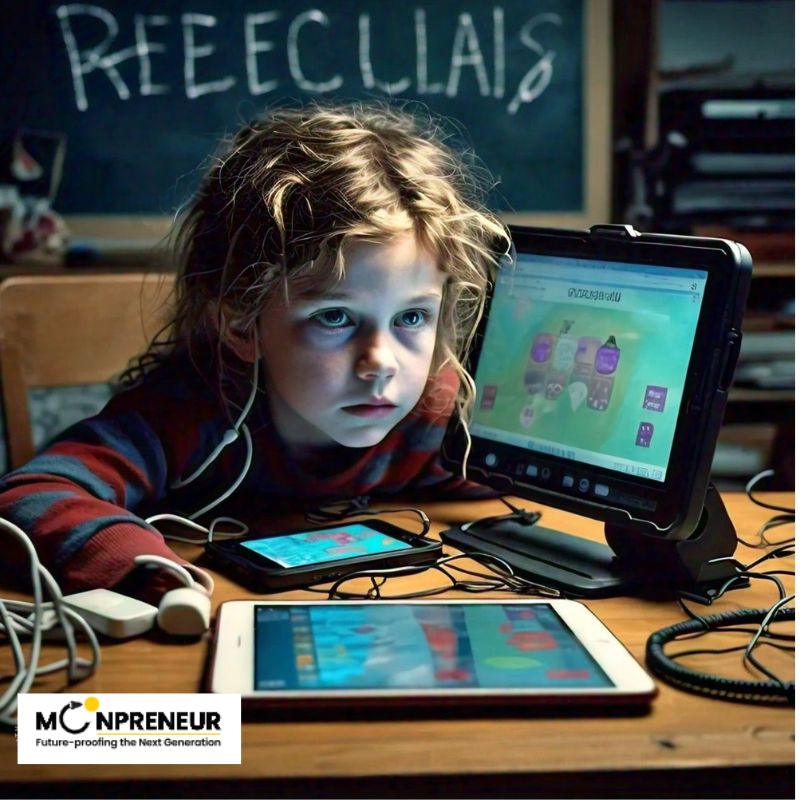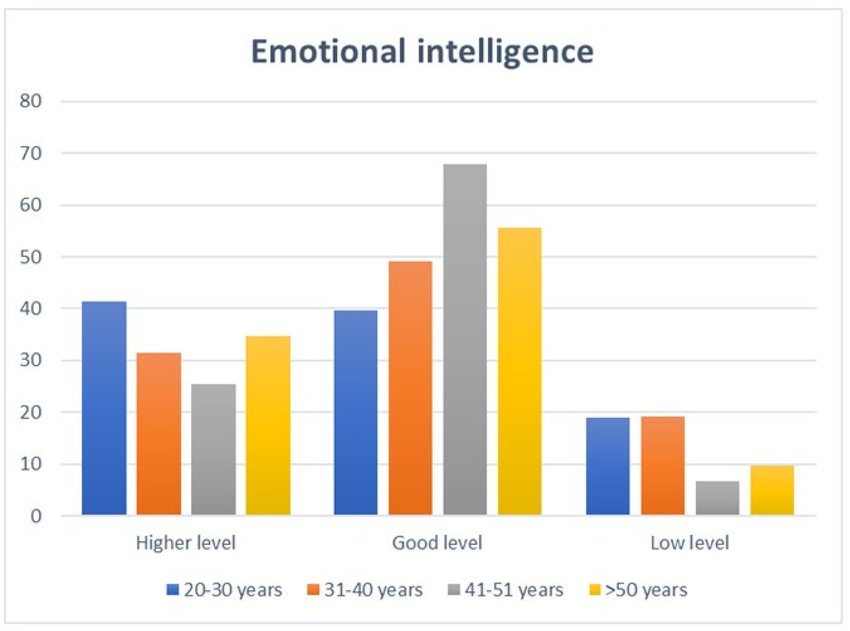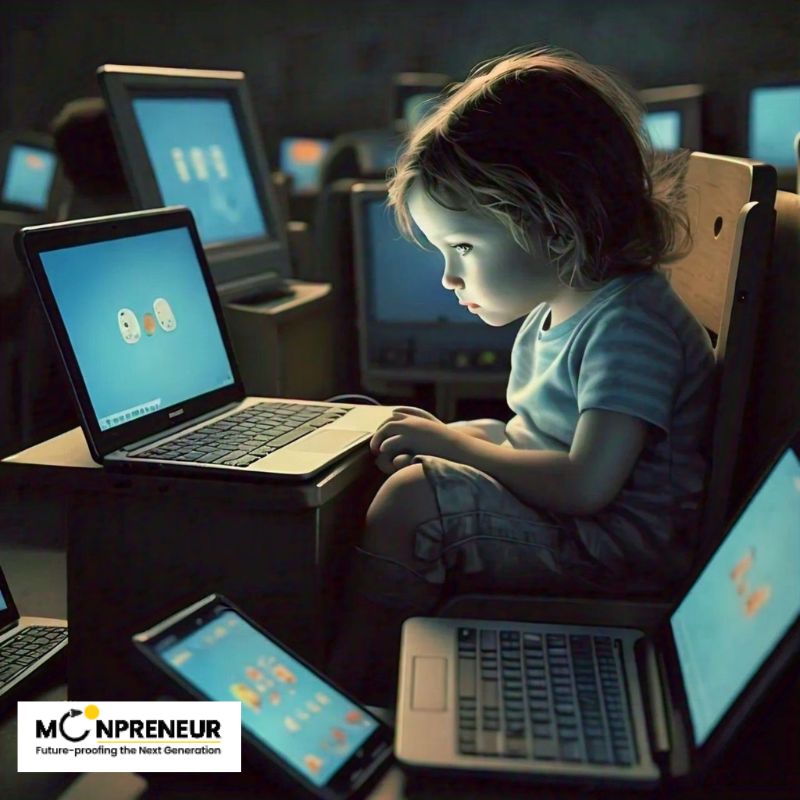Update: This article was last updated on 14th January 2026 to reflect the accuracy and up-to-date information on the page.
The widespread application of technology among children is having a profound effect on their emotional intelligence. With the advent of smartphones, tablets, and continuous online communication, children are spending less time communicating face-to-face and more time in virtual settings. This change diminishes the chances for them to acquire vital social skills, including empathy, emotional control, and effective communication.
Rather than venturing into real-life social interactions, kids are frequently alone in front of screens, which can disrupt them from being able to recognize and regulate their own feelings and those of others. As a result, excessive use of technology can suppress emotional intelligence development, something that is imperative for developing sound relationships and long-term personal achievement.

Today‘s technology plays a significant role in our lives, including the emotional intelligence (EI) of children. The graph illustrates levels of emotional intelligence among age groups: 20-30 years (blue), 31-40 years (orange), 41-51 years (grey), and less than 50 years (yellow). It indicates that younger adults tend to have greater EI, and levels differ between older age groups. This information highlights the way technology affects emotional development and brings to light the importance of discussing its impact on children‘s EI.

Image Source: Research Gate
The Change in Social Interactions
Technology has also altered the manner in which we interact with and communicate to one another. Kids, who were previously spending hours outdoors playing, discussing matters face-to-face, and building social skills, are now staying indoors staring at screens. Facebook, video games, and texting apps have substituted many conventional methods of engagement. This transformation can contribute to a lessening in the process of cultivating strong emotional intelligence skills like empathy, self-awareness, and social emotional learning.

Pro Tip
|

Reduced Empathy and Social Skills
Empathy, the capacity to recognize and share another’s feelings, is an important facet of emotional intelligence. As children participate in face-to-face interactions, they are able to pick up on body language, facial expressions, and tone of voice that accompany communication. But digital communication, which tends not to include these non-verbal indicators, makes it more difficult for children to engage in and maintain their empathetic and social skills.
In addition, children who spend long hours on their mobile phones are likely to be deprived of social learning experiences that enable them to deal with everyday social situations. They could lack skills in decoding emotions and acting appropriately in social settings, causing a reduction in their social competence.
The Impact of Screen Time on Emotional Regulation
Emotional control, or the capacity to manage and respond to one’s emotions in a healthy manner, is yet another essential component of emotional intelligence. High levels of screen time, especially where it involves the viewing of highly stimulating or emotionally stimulating content, can render children unable to control their emotions. They can become more susceptible to mood swings, irritability, and inability to calm down upon use of technology.
In addition, the immediacy of gratification technology so frequently offers can create impatient and non-persistent children. Kids can have difficulties with delayed gratification, a valuable skill for emotional regulation and general emotional intelligence.


Reduced Face-to-Face Communication
The ease of electronic communication may at times take the place of meaningful face-to-face interactions. Although texting and video conferencing can keep one connected, they do not yield the same intensity of connection as face–to-face interactions. Kids who are so used to open communication may not be able to form strong interpersonal relationships and can feel lonely even when they are always connected on the internet.
Practicing Emotion Coaching to Counteract the Effects of Technology
Parents and teachers can help reduce the adverse effects of technology on kids’ emotional intelligence. Practicing emotion coaching is one way of doing this. Emotion coaching is a practice where children are led through their feelings and instructed on how to recognize and deal with their emotions.
Through embracing the positive parenting power, grown-ups have the ability to create a loving space where the young ones grow in understanding and mastering their own feelings in healthy ways. Taking active participation mitigates the detrimental consequences of heavy screen usage and supports the creation of emotional intelligences that provide solid foundations for stable relationships as well as all-round success throughout life.

Let’s delve into the subtle ways technology reduces emotional intelligence in children and how parents can reverse these impacts.
1. Tech-Induced Emotional Numbness: The Increasing Disconnect
One of the most alarming consequences of too much screen time is “Tech-Induced Emotional Numbness“—a process by which children become emotionally numb to their own and others‘ feelings.
🔹 Why It Happens: Children perpetually saturated with digital content—be it through social media, video games, or YouTube—are blitzed with rapid, surface-level interactions that don‘t demand intense emotional involvement. As time goes on, it lessens their capacity to identify, process, and respond to emotions in a meaningful way.
🔹 Example: Children who excessively view high–speed cartoons or play high-adrenaline video games tend to have difficulty being patient and developing intimate emotional connections, according to research.
✅ Solution: Encourage children to engage in real-life storytelling—where they share their feelings and experiences in detail, rather than just reacting with emojis or short responses online.
2. Digital Echo Chambers: The Loss of Perspective
Another secret manner in which technology decreases emotional intelligence among children is through algorithm-based content blocking. Social media platforms present children with only what they wish to see, developing “digital echo chambers“ that amplify their current points of view and emotional reactions.
🔹 Why It’s a Problem: If children are not exposed to different perspectives, they can have difficulty interpreting various emotions, conflicting opinions, and sophisticated social cues. Difficulty in conflict or disagreement is presented in real-life situations.
🔹 Example: A child who sees their social media timeline full of “funny fail videos“ might begin to find others’ distress funny instead of learning to empathize.
✅ Solution: Parents can promote media variety by exposing children to documentaries, debate shows, and interactive educational programming that stimulate their minds and emotional reactions.
3. The Digital Tantrum Effect: Decreased Emotional Regulation
One of the primary ways technology decreases emotional intelligence in children is through instant gratification. Online environments offer instant rewards, which makes it more difficult for children to practice emotional patience and self-regulation.
🔹 Why It Happens: The dopamine-fueled design of social media, video games, and streaming services favors impulsiveness, resulting in frustration when kids experience delays in the real world.
🔹 Example: A kid who is used to bypassing ads and receiving instant likes on social media might struggle with waiting his turn during a conversation or classroom discussion.
✅ Solution: Implement “emotional patience exercises,” for instance, taking a few minutes to reply to messages or using mindfulness exercises to manage impulses.
4. Silent Generation 2.0: Why Kids Speak Less Today
Children’s manner of speaking is changing, but not perhaps for the best. With emojis, GIFs, and brevity, many children are having a hard time putting feelings into words.
🔹 Why It’s a Problem: Instead of saying “I’m feeling frustrated,” kids may just send a 😩 emoji, reducing their ability to express complex emotions. Over time, this weakens their emotional literacy, making it harder for them to communicate feelings in real-world scenarios.
🔹 Example: Teachers have noticed that children today are more hesitant to participate in verbal discussions, as they’re more accustomed to text-based interactions.
✅ Solution: Implement a “No-Emoji Challenge“ at home, where children need to describe their feelings in complete sentences rather than using emojis or abbreviations.
5. Emotional Hijacking: How Notifications Disrupt Kids‘ Concentration
One of the most underappreciated methods through which technology reduces emotional intelligence in children is through continuous digital distractions.
🔹 Why It Happens: Social media and messaging app notifications leave kids in a perpetual state of reactivity, with it becoming increasingly difficult for them to be fully present in real-life interactions.
🔹 Example: If a child has constant WhatsApp or Snapchat notifications while studying, he/she will have shorter attention spans and increased levels of frustration when asked to concentrate for longer intervals.
✅ Solution: Have “notification detox“ sessions, where kids switch off notifications during study, meal, and sleep times to learn deep concentration and significant engagement.
6. The Tech Detox Challenge: A Fun Rebuilding of Emotional Intelligence
To empower parents and children to actively resist technology’s impact, attempt the following 7-day tech detox challenge:
📅 Day 1: No devices at the dinner table.
📅 Day 2: Write down emotions instead of texting them.
📅 Day 3: Swap 30 minutes of screen time for face-to-face conversation.
📅 Day 4: Play an emotion-based board game (like The Ungame or Feelings Bingo).
📅 Day 5: Watch a movie together and discuss the emotions of the characters.
📅 Day 6: Spend a day without social media and reflect on how it feels.
📅 Day 7: Journal about one real-life interaction that made you feel happy.
This challenge assists in rebuilding crucial emotional intelligence skills while having fun for the whole family.
Steps parents should follow to help regulate their children’s emotions
Step 1: Be Aware of Your Child’s Emotions
Emotion coaching begins with being aware of your child’s emotions. This means recognizing both your own feelings and those of your child. By being sensitive to your child’s emotional state, you can respond appropriately without requiring them to exaggerate their emotions for recognition.
Step 2: See Emotions as an Opportunity for Connection and Teaching
Children’s emotions should be viewed as an opportunity to connect and teach, rather than an inconvenience. When a child expresses emotions, it’s a chance to bond and guide them through understanding and managing their feelings.
Step 3: Listen and Validate Feelings
Active listening is key. Give your child your full attention and validate their feelings by reflecting back what you hear. This shows your child that their emotions are understood and taken seriously.
Step 4: Label Their Emotions
Help your child develop an awareness of their emotions by labeling them. Providing a vocabulary for their feelings aids in emotional literacy, making it easier for them to communicate their emotions effectively.
Step 5: Help Your Child Problem-Solve with Limits
While all emotions are acceptable, not all behaviors are. Guide your child in coping with their emotions by teaching problem-solving skills and setting behavioral limits. This involves setting goals and brainstorming solutions together to manage their feelings appropriately.
Conclusion
Though technology has numerous benefits, it‘s worth being careful not to undermine its potential effects on kids’ emotional intelligence. With a balance of screen time and actual contact with the world and emotional learning experiences, and with emotion coaching, we can assist children in building the abilities they must master in order to succeed both emotionally and socially in today’s digital age.
Seeking a complete parenting guide to make sure you are on the right path? Discover a treasure trove of parenting knowledge and educational information in Moonpreneur‘s blogs. You can also enroll in our programs that cultivate the next generation of innovators. Book a free trial now!

























